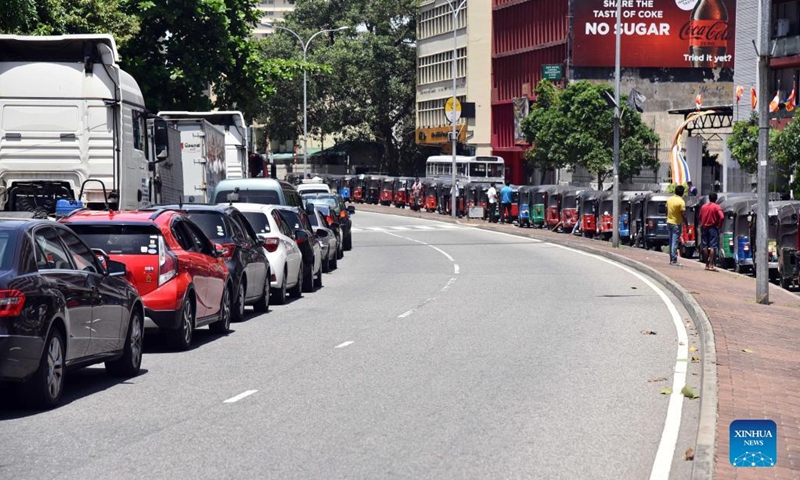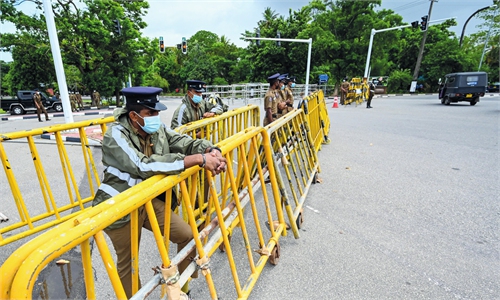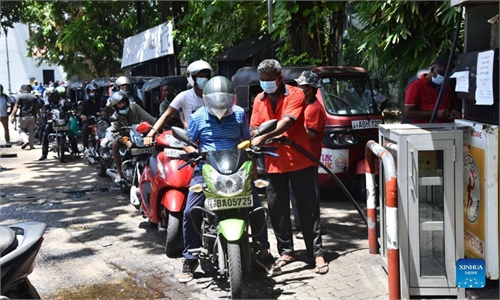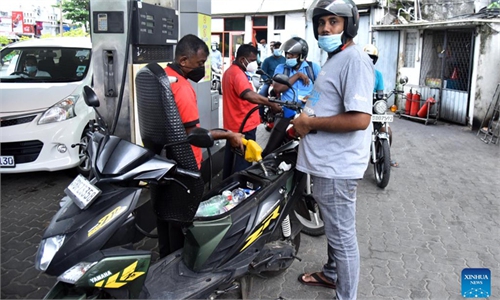Sri Lanka PM vows to slash expenditure in new budget

Vehicles wait in line for a fill-up outside a gas station in Colombo, Sri Lanka, on May 16, 2022. Sri Lankan Minister of Power and Energy Kanchana Wijesekera on Monday assured the public of adequate fuel in the country soon. Sri Lanka has been facing a severe fuel shortage, triggering almost daily power cuts in the past few months.(Photo: Xinhua)
Sri Lanka's new Prime Minister Ranil Wickremesinghe said on Tuesday he will present an interim budget within six weeks, slashing infrastructure projects to re-route funds into a two-year relief program for the crisis-hit island nation.Wickremesinghe, who took office two weeks ago, warned that inflation would rise as the government gets down to tackling the crisis, and that there could be more protests on the streets.
He said he hoped any unrest would not get out of hand, adding that funds would be made available to help the most vulnerable of the country's 22 million people.
"Looking at the hard days ahead, there has to be protest. It's natural when people suffer, they must protest," Wickremesinghe said in an interview at the colonial-era prime minister's office in Colombo.
"But we want to ensure that it does not destabilize the political system. With the interim budget, it is just about cutting down expenditure, cutting to the bone where possible and transferring it to welfare."
The country located off India's southern tip is reeling from its worst economic crisis since independence in 1948, as a shortage of foreign currency severely curtailed imports of essentials including fuel and medicine, triggering months of unprecedented protests.
Much of the public ire has been targeted at President Gotabaya Rajapaksa and his family, whom protesters blame for mishandling the economy.
The roots of the current crisis also lie in the COVID-19 pandemic, which devastated the country's lucrative tourism industry and sapped foreign workers' remittances, and populist tax cuts enacted by the Rajapaksa administration that drained government income.
Reuters



